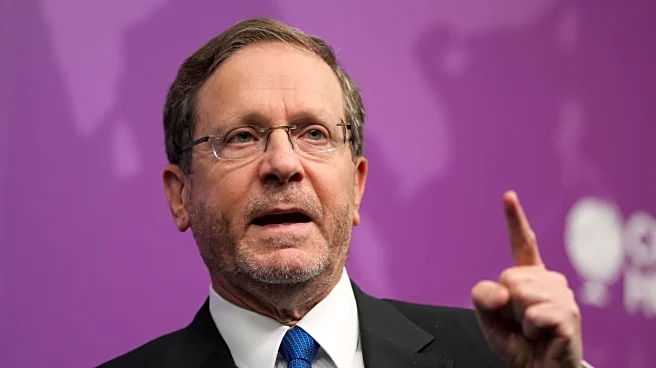Rapid Read • 9 min read
Congress has approved a $1.1 billion cut in federal funding for public media, affecting NPR and PBS affiliates across the United States. This decision has sparked concern among staffers at local stations, particularly those in rural areas that rely heavily on federal grants. The funding cuts are part of a broader package that also includes reductions in foreign aid. The move follows President Trump's request to roll back funding for these organizations, which he has accused of bias against him and other Republicans. Many local stations, such as KEDT-TV/FM in Corpus Christi, Texas, and KRZA-FM in Alamosa, Colorado, are now facing potential staff layoffs and programming cuts. The Corporation for Public Broadcasting, which provides grants to these stations, has indicated that nearly half of the affected stations are in rural areas, with some relying on federal funds for up to 50% of their budget.
AD
The funding cuts pose a significant threat to the survival of many local public media stations, particularly in rural areas where federal grants constitute a substantial portion of their budgets. These stations provide essential services, including local news and emergency alerts, which are crucial for community engagement and safety. The decision to cut funding has been criticized as politically motivated, targeting local stations to spite national NPR and PBS networks. The impact of these cuts could lead to reduced access to information and cultural programming for millions of Americans, particularly in underserved regions. The move also highlights ongoing tensions between the Trump administration and media outlets, raising concerns about the future of public broadcasting in the U.S.
Public media stations are now strategizing on how to cope with the loss of federal funding. Some are considering staff reductions and programming cuts, while others are ramping up fundraising efforts to cover operational costs. The Corporation for Public Broadcasting grants will continue through the end of the fiscal year, but many stations are uncertain about their long-term viability. Political opposition to the funding cuts may emerge, with some public media staffers hoping to leverage grassroots networks to influence future elections. The impact of these cuts could become a significant issue in the 2026 midterms, potentially affecting voter sentiment and political dynamics.
The funding cuts raise ethical questions about the role of government in supporting public media and the implications of politicizing funding decisions. The move could lead to a shift in the media landscape, with local stations potentially losing their ability to provide non-partisan, community-focused content. The decision also underscores the challenges faced by public media in maintaining independence and credibility amid political pressures. Long-term, the cuts could alter the cultural fabric of communities that rely on public broadcasting for diverse programming and local news.
AD
More Stories You Might Enjoy











